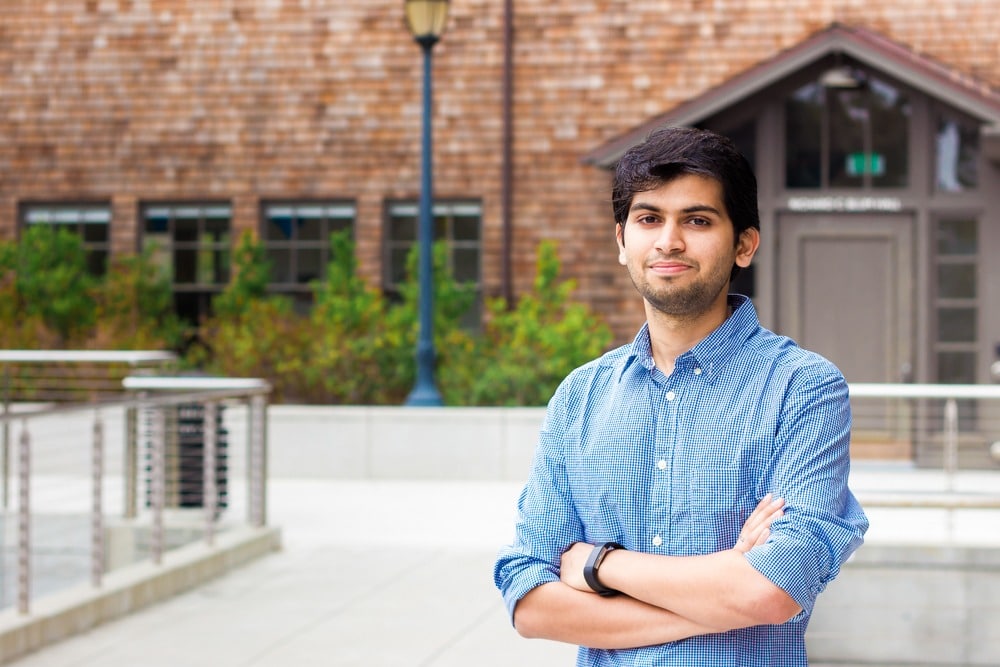
Assistant Professor Deepak Pathak of Carnegie Mellon University. Photo credit: Nitesh Mor
Summary
- Carnegie Mellon University (CMU) in Pittsburgh has received a grant from research and development company, GoodAI, in order to carry out research to make artificial intelligence (AI) better at generalizing and more curious. The research will be led by Assistant Professor Dr. Deepak Pathak.
- The project aims to address generalization across different tasks and different environments in a modular system, driven by curiosity and modularity, with a zero-shot planning component.
- The researchers aim to create a “joint learning framework,” that will mimic curiosity-driven learning while taking into account evolutionary changes.
Researchers at Carnegie Mellon University (CMU)’s School of Computer Science in Pittsburgh are working on a project aiming to make artificial intelligence (AI) more resourceful and curious. The project is funded by a grant from international research and development company GoodAI as part of its wider effort aiming to bring together researchers across the globe to work on tasks related to creating a more human-like artificial intelligence.
One of the hallmarks of human intelligence is generalization, the ability to adapt to novel situations. Current AI can excel at specific tasks like recognizing objects, cleaning floors or playing and beating humans at complex games such as chess. However, it can’t generalize or take on new tasks without huge amounts of training.
The research team, led by Assistant Professor Dr. Deepak Pathak, has identified two major shortcomings of modern AI; the lack of ability to generalize across tasks, meaning the AI cannot solve new tasks, and the lack of ability to generalize across environments, meaning the AI can only perform its given task in a specific environment. The ability to solve new problems and in different environments is a fundamental part of human intelligence.
Humans grew up learning to generalize and adapting all the time to solve new tasks in new situations. Developmental psychologists have identified curiosity as one of the primary drivers in the early stages of development when humans learn to generalize. This learning through curiosity happens throughout life and is coupled with learning at an evolutionary scale.
Inspired by how humans learn, Deepak and his team aim to mimic this curiosity-driven learning while taking into account evolutionary changes. They will create a simulated environment where, during training, AI agents will be allowed to explore in an unsupervised manner via curiosity.
“Common practice today is to train machine learning models just once on a fixed dataset and then test them on unseen scenarios. This is like expecting the model to learn to act for all possible inputs ahead of time. If we want the learned models to truly generalize to unseen circumstances, we have to let them continually adapt by requiring no or minimal supervision from humans. Our focus is on how to do so for embodied agents. We are thankful to GoodAI for contributing to this effort,” Pathak said.
The grant is part of the ongoing GoodAI Grants initiative, which has awarded over $600,000 so far. The initiative is supporting research groups across the world solving problems related to GoodAI’s Badger architecture. The vision is that each research grant, along with the work of the GoodAI research team, will contribute to basic AI research, and all together fill in gaps in the roadmap to advanced, increasingly human-like AI.
Marek Rosa, CEO and CTO of GoodAI said: “It is great to be working with Deepak and CMU on this project. It could have great implications for the future of artificial intelligence and is aligned with the goals of GoodAI. Deepak recently spoke at our Meta-Learning & Multi-Agent Learning Workshop and our research team found his work on ‘Learning to Control Self-Assembling Morphologies’ extremely valuable.”
Collaborate with us
If you are interested in Badger Architecture and the work GoodAI does and would like to collaborate, check out our GoodAI Grants opportunities or our Jobs page for open positions!
For the latest from our blog sign up for our newsletter.





